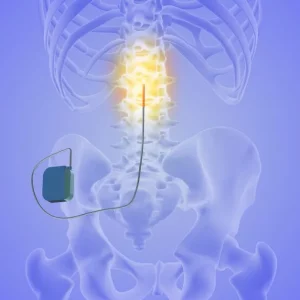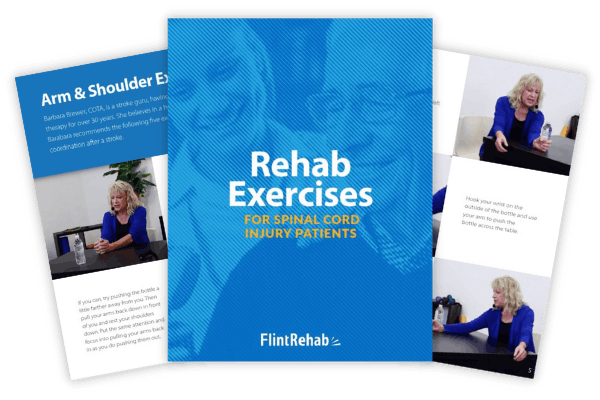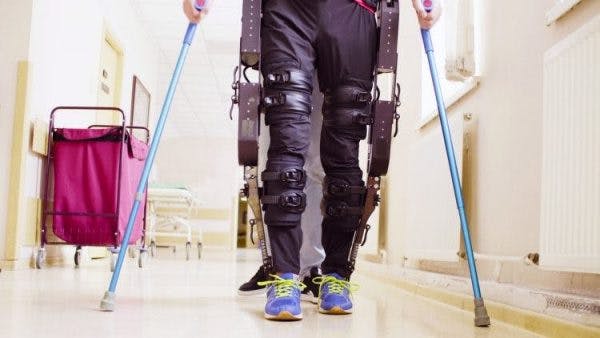Survivors may experience a variety of cognitive effects after sustaining a spinal cord injury (SCI), including fatigue and impaired memory. However, this begs the question, can a spinal cord injury cause memory loss?
The answer is no, at least not directly. Cognitive function is only affected by a spinal cord injury with a co-occurring traumatic brain injury (TBI).
This article will explore the connection between SCI, TBI, and memory. It will also discuss management techniques you can use to cope with memory loss.
Can a Spinal Cord Injury Cause Memory Loss?
The simple answer is no. Spinal cord injury will affect motor and sensory functions relayed via the spinal cord, but it will not cause memory loss because this ability is housed in the brain. Memory is a cognitive function and cognitive functions are regulated by the brain, not the spinal cord.
The spinal cord connects the brain to the rest of the body. It serves as the communication pathway between the two and is mostly responsible for movement and sensation. This is why the primary effects of a spinal cord injury affect movement and sensation.
However, some complications of spinal cord injury can also affect cognitive functions. For example, if a survivor experiences fatigue or pain after spinal cord injury, that may affect cognitive function and result in challenges with memory. The link is not direct, but these factors can contribute to memory loss after spinal cord injury.
It’s also important to look at the nature of the accident that caused the spinal cord injury. Sometimes, a spinal cord injury occurs alongside a traumatic brain injury, which can affect cognitive functions such as memory. In fact, studies show that about 59% of spinal cord injury survivors simultaneously experience a TBI. For example, in a car accident, hyperextending your neck is categorized as a spinal cord injury, but hitting your head on the car window is a traumatic brain injury.
Ultimately, a spinal cord injury alone cannot cause memory loss, but other complications or a co-occuring TBI can contribute. Fortunately, there are ways to help manage your memory and improve cognitive function.
Managing Memory After SCI

When a spinal cord injury and traumatic brain injury occur at the same time, the severity of both injuries will impact the secondary effects the survivor may experience.
For instance, after a TBI some survivors are able to maintain long-term memory but struggle with short-term memory. This means it can be less challenging to recall things from the past, but more difficult to retain new information. This occurs when pathways in the brain have been affected by an injury.
Fortunately, cognitive functions can be improved through neuroplasticity, the brain’s ability to rewire itself. Neuroplasticity is best activated through high repetition of activities. For example, the more a skill is practiced, the more the brain recognizes its importance and strengthens the existing pathways for it and/or creates new ones. Therefore, it’s important to practice as much as you can to promote recovery. This is true for memory as well. Reviewing names or numbers will improve your ability to recall them.
Working with an occupational and/or speech therapist is extremely helpful. They can provide a cognitive rehabilitation plan suitable for your ability level. Additionally, there are various cognitive exercises you can do at home in between therapy sessions to stay engaged and activate neuroplasticity.
Particularly to address memory after spinal cord injury, you can try:
- Writing things down
- Setting reminders on your phone
- Getting adequate sleep
- Reducing stress
- Getting rid of distractions
To keep yourself motivated and engaged in consistent therapy, you can use the CT Speech and Cognitive Therapy App. This app provides access to over 100,000+ cognitive rehabilitation exercises to help improve memory and other skills.
Cognitive rehabilitation is particularly helpful if memory challenges are the result of a TBI. If you have not sustained a TBI but still struggle with memory after spinal cord injury, talk to your doctor or therapist to see if there are underlying issues. For example, if you struggle with pain or fatigue, your doctor might be able to help, and that can help improve overall cognitive function including memory.
Last but not least, be patient with yourself. The chances of improving memory increase with time and consistent practice.
Addressing the Connection Between SCI and Memory Loss
Spinal cord injury is complex and multifaceted. It affects movement and sensation depending on the level of injury. While SCI can directly affect movement and sensation, it does not cause memory loss alone.
Instead, only a spinal cord injury with a co-occurring traumatic brain injury can cause a variety of cognitive difficulties including impaired memory. Fortunately, memory and other cognitive functions can be improved through neuroplasticity.
We hope this information helps you understand the link between spinal cord injury and memory loss, and encourages you to engage in cognitive therapy.










